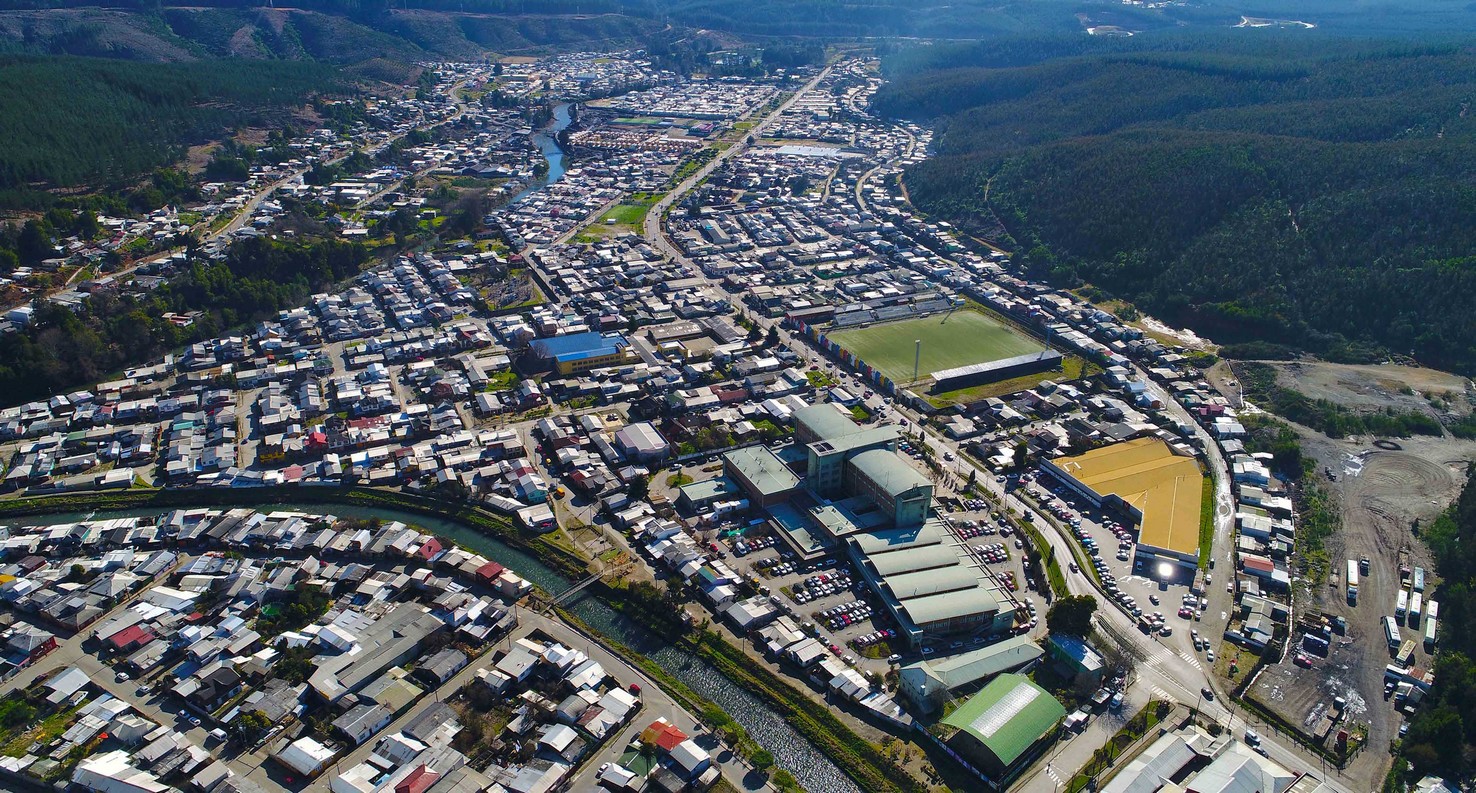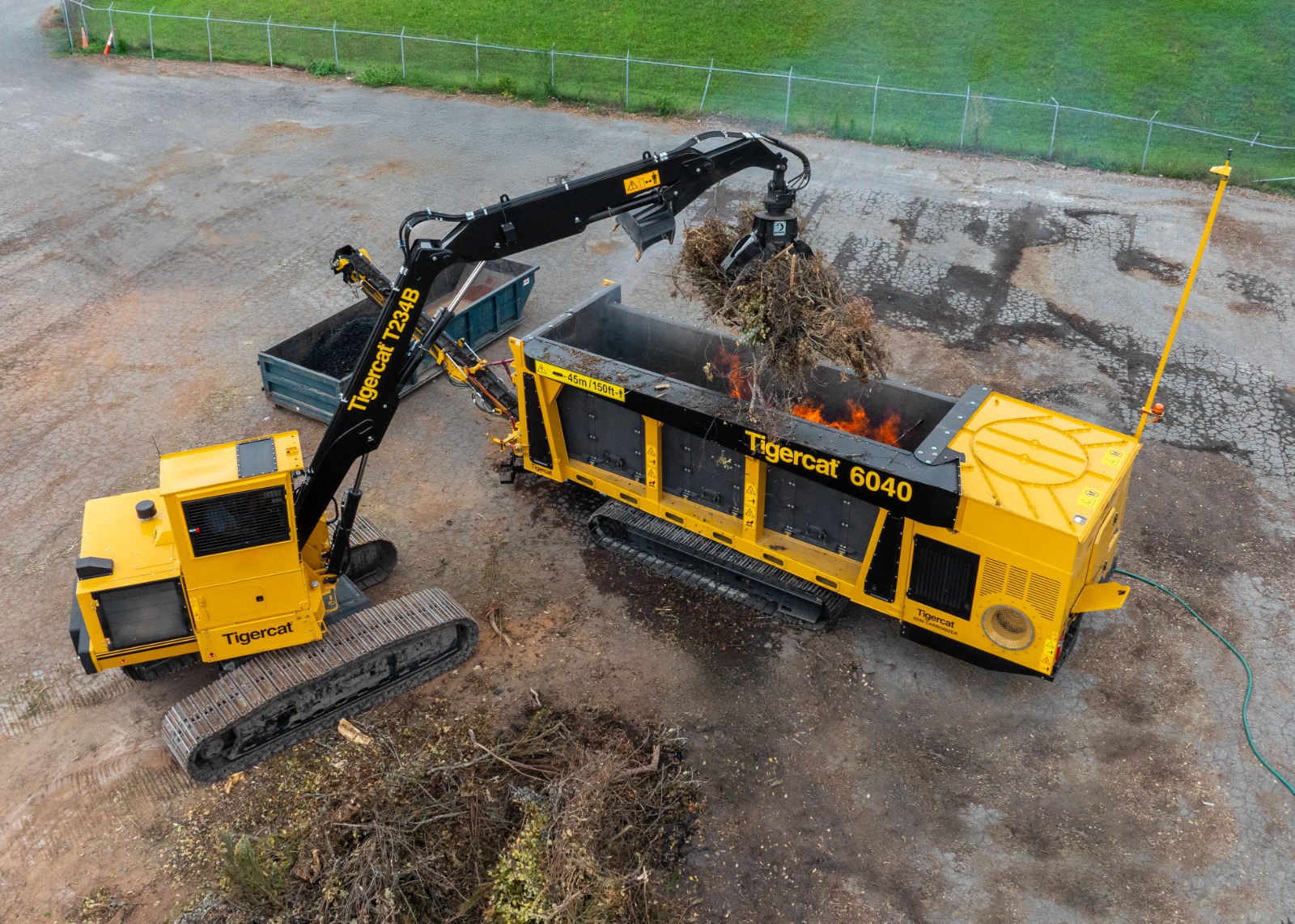- Alejandra Burgos stated that dependence on state employment is key in her commune and that the closure of the forestry plant hits the community hard. An estimated 143 layoffs have been reported, with the total chain of impact affecting over 1,200 people.
The mayor of Curanilahue expressed concern following the announcement of the closure of the El Colorado Sawmill in her commune. This is because it will affect 143 people and their families, as well as the entire virtuous chain of businesses generated by its operation.
In a conversation with Diario Concepción, the communal leader requested that the company donate the machinery that would otherwise go unused so that the same workers or others in the area can repurpose it. For example, to set up a factory for industrialized housing or to dry wood.
“We are deeply saddened by the situation of the families. There are one hundred and forty-three people who will lose their jobs. Seventy-eight have already left, and the others will leave at the end of the month once the plant shuts down. This leaves us in a very complex employment situation because forestry exploitation is a significant source of jobs in the commune. We feel this is a rather unfortunate decision by the company,” said Alejandra Burgos.
“We understand this is part of their process to modify the type of wood they produce. Remember, in Curanilahue, 75% of our territory—99 thousand hectares—is planted with Forestal Arauco plantations. This means much of the commune’s production capacity is actually taken elsewhere. It’s carried away,” she added.
In this regard, Burgos emphasized that they have proposed to the government the possibility of modifying the commune’s productive matrix because, according to her, they had foreseen that something like this could happen.
“The commune is currently deeply affected by this situation, with a feeling of abandonment, as has happened in other historical periods when coal mines closed, and now the sawmill is shutting down. Today, we are left mainly dependent on the State,” she added.
Is this process similar to what happened with Huachipato in Talcahuano, or not?
This has a much longer evolution and is clearly tied to the productive vocation of the region. But, specifically—and here I want to be very responsible—we cannot ignore the fact that the company or the forestry industry in the Arauco province is a thriving industry. They have a gigantic pulp plant, which they are shifting toward Mapa production, the largest plant in Latin America, whose primary input is eucalyptus. And that’s what we see happening in our fields, where eucalyptus is mainly being planted.
But in terms of its effects, this crisis resembles the steel industry’s impact on Curanilahue.
It has significant negative effects because the type of employment it provided in the area was well-paid. Therefore, it created a segment of the population earning high-quality wages. So yes, it does have an impact—I’m not sure if as significant as Huachipato in Talcahuano. What will be heavily affected are the suppliers who serviced the plant. Yes. And there, we have a fairly important chain, for example, of transporters, cleaning service providers, food service providers, waste handlers, and others who will be impacted by this, and that’s where the chain starts to expand.
Beyond direct employment, what is the estimated impact on the broader chain?
In total, the impact on the commune in terms of people should be around 1,200. In terms of total employment, it would be worse, for example, than losing the employment programs currently in place, which account for a significant number—around five thousand jobs. But having this so-called ‘employment source’ provided by the State is not ideal; that should change.
What we hope is that this changes and we don’t have to depend on those kinds of unemployment subsidies, but rather have real job sources and not rely solely on one or even the State.
What have you proposed to the company?
Yes, we’ve proposed that the infrastructure they’ll leave unused could be repurposed so people can reuse it. We’re about to start the Decontamination Plan, and this plant has large dryers—huge chambers—that would allow entrepreneurs, possibly even current workers, to generate economic activity. The same goes for industrialized housing—this plant meets the minimum requirements to enable that production. Around 800 homes could be built locally, and the infrastructure would support it.
So, the idea is for the company to donate the machinery...
The company is willing—at least based on my conversation with the executives who came to discuss the closure—to consider a similar arrangement to what’s being done in Licantén, where unused infrastructure was handed over to third parties.
And the message you’ve given the government...
I sympathize with the government—I’m not an officialist, I don’t belong to any political party, so I’m not part of them. However, what I did was, on the same day as the announcement, contact the Minister of Housing to expedite pending authorizations, as well as Economy to address support for entrepreneurs who will lose their jobs, and the Ministry of Labor regarding unemployment absorption in the commune.
Do you believe it’s true that closures like Curanilahue’s are because companies lack the conditions to operate in Arauco, as has been suggested?
The company is trying to certify something when, in practice, this is about restructuring. From my conversations with this and other companies, I’ve seen an attempt to frame state support as necessary for maintaining the industry, especially for small landowners—that’s what they’ve told me. However, one questions the stance they’re taking (...) Factors like the Puerto Coronel strike are influencing this now, but the industry has the capacity to assess long-term scenarios. I’ll make a personal comment, but I think it’s important: you’d have to be a very poor businessman to, after receiving subsidies for years—at least two planting cycles funded by the State—still fail to prepare for lean times.
Source:Diarioconcepcion.cl







Comments (0)
No comments yet. Be the first to comment!
Leave a comment